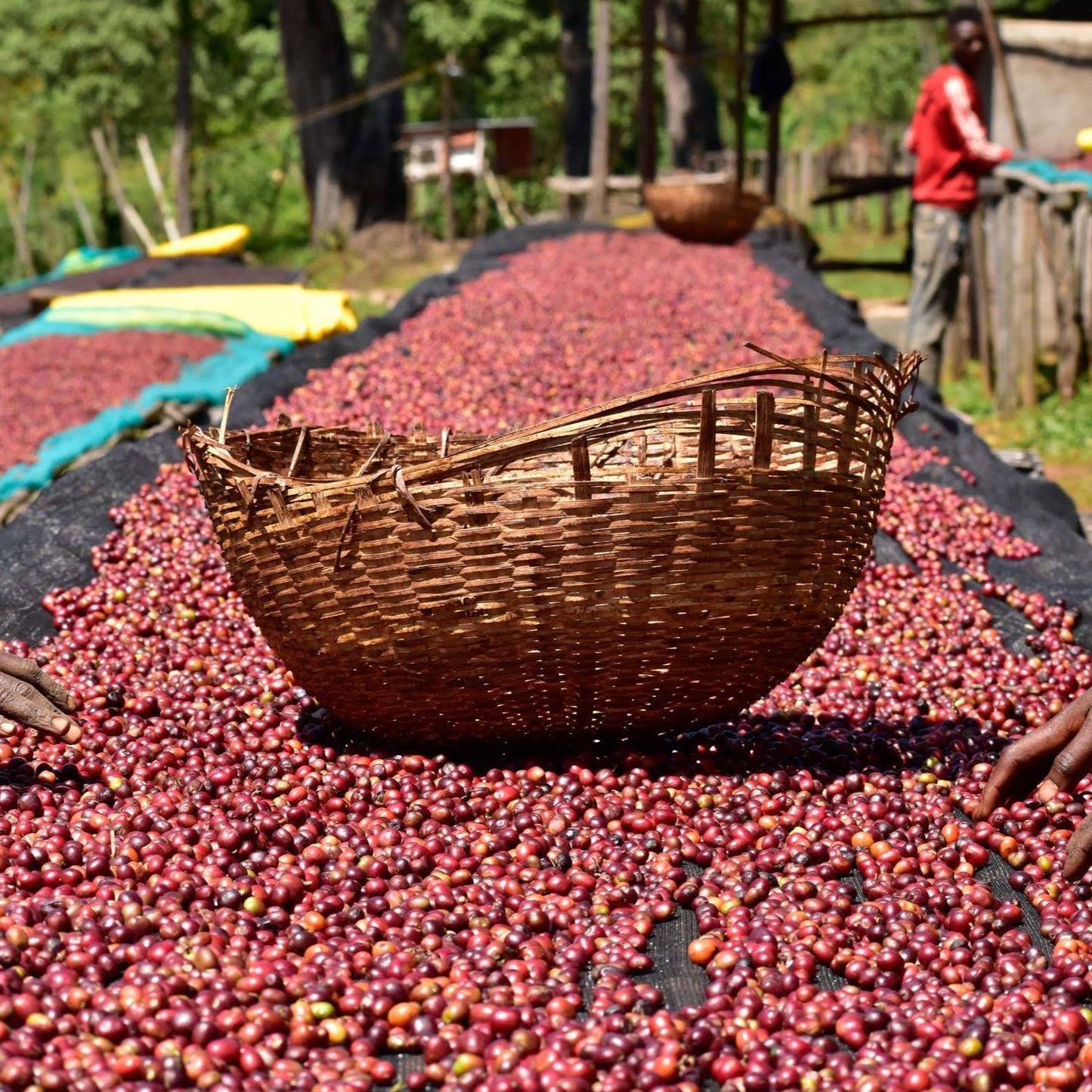
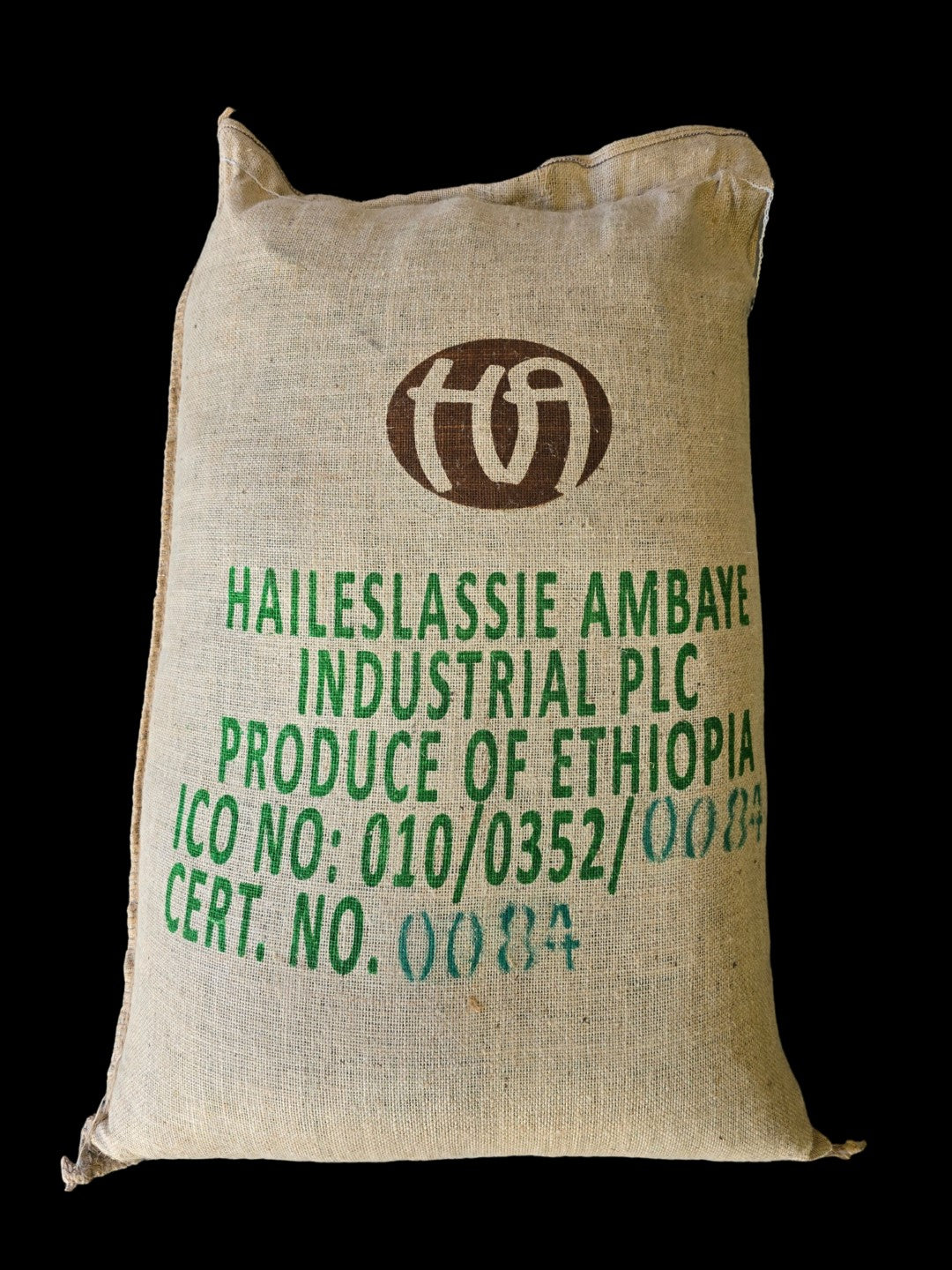
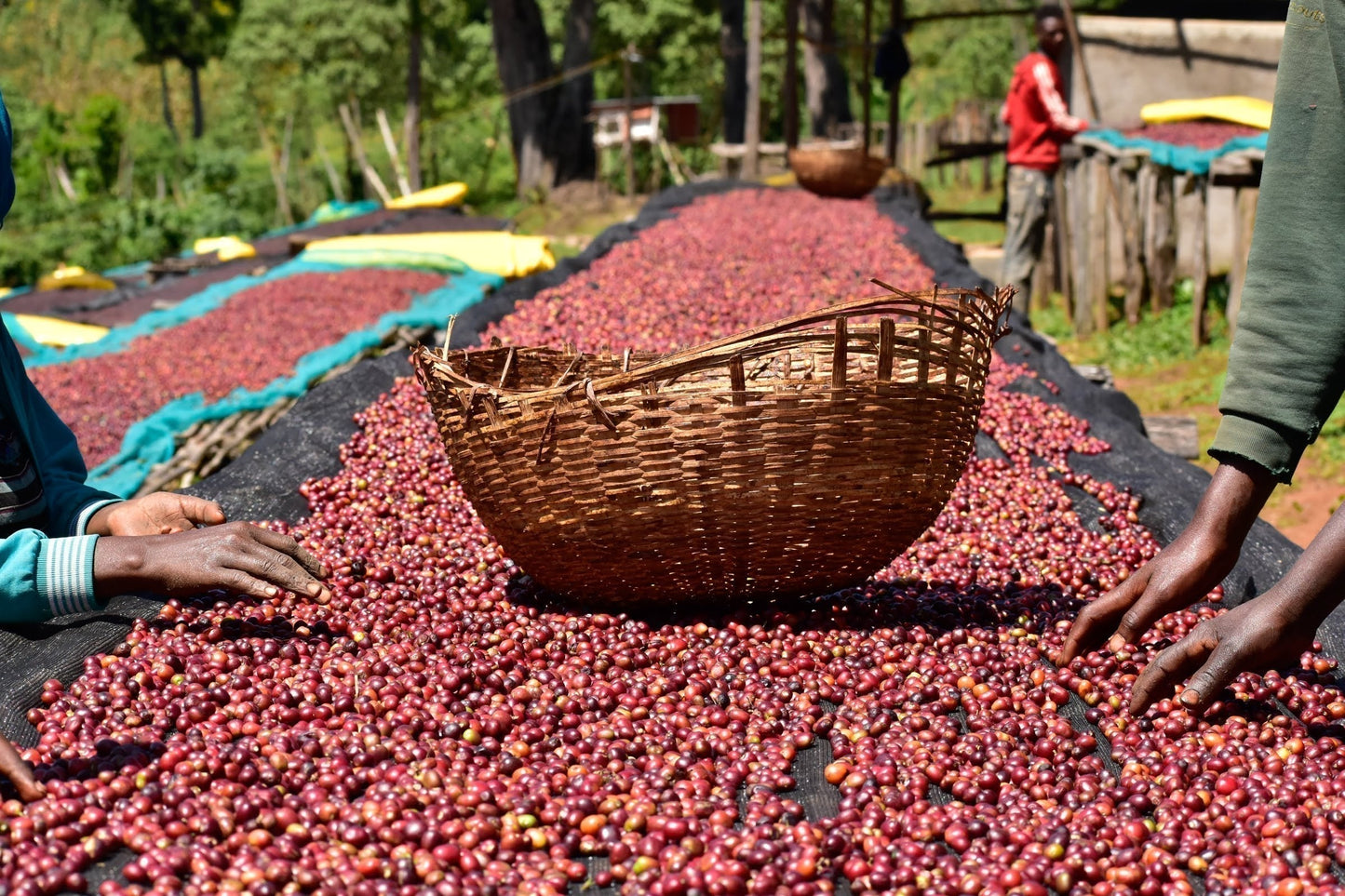
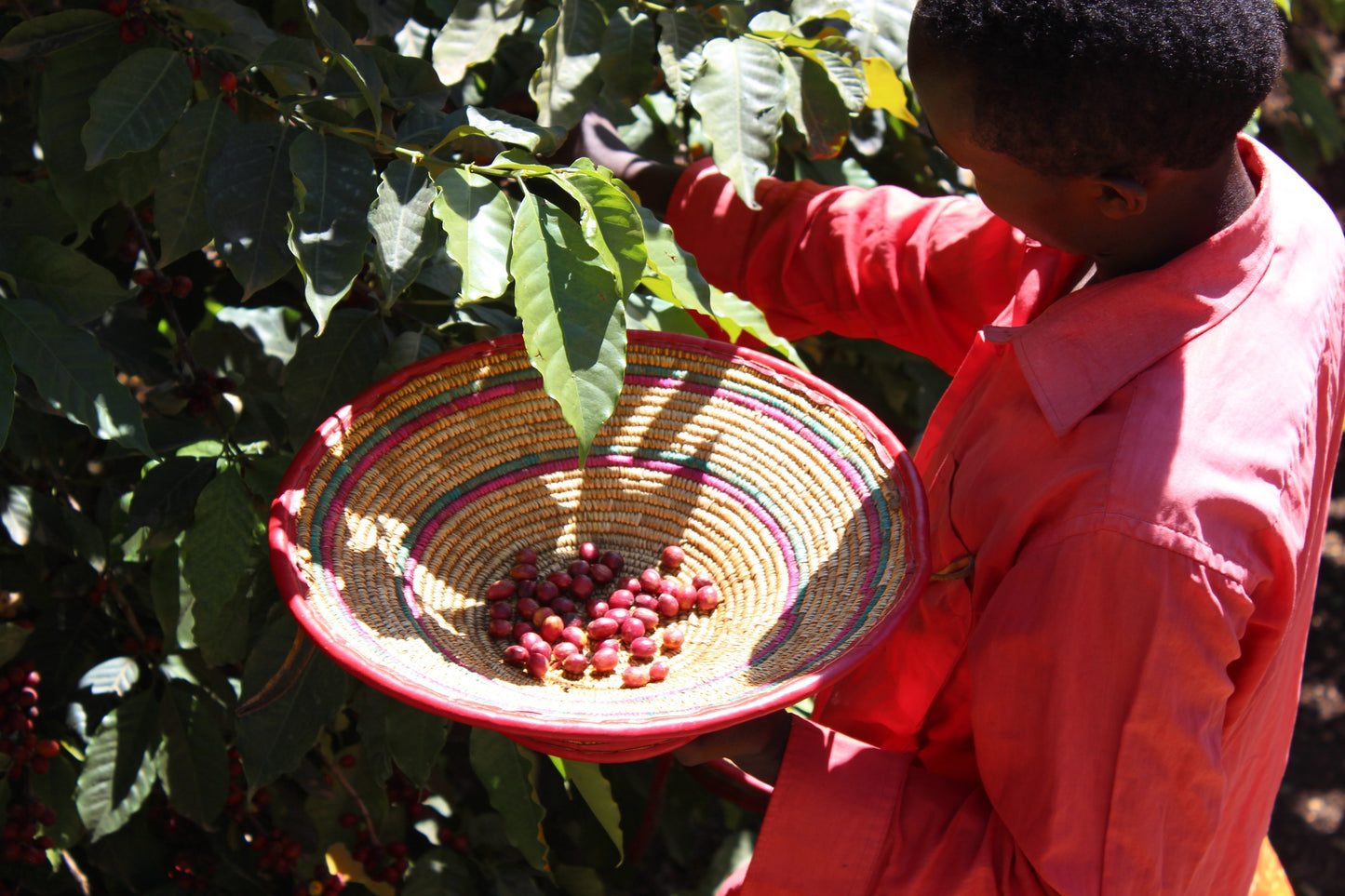
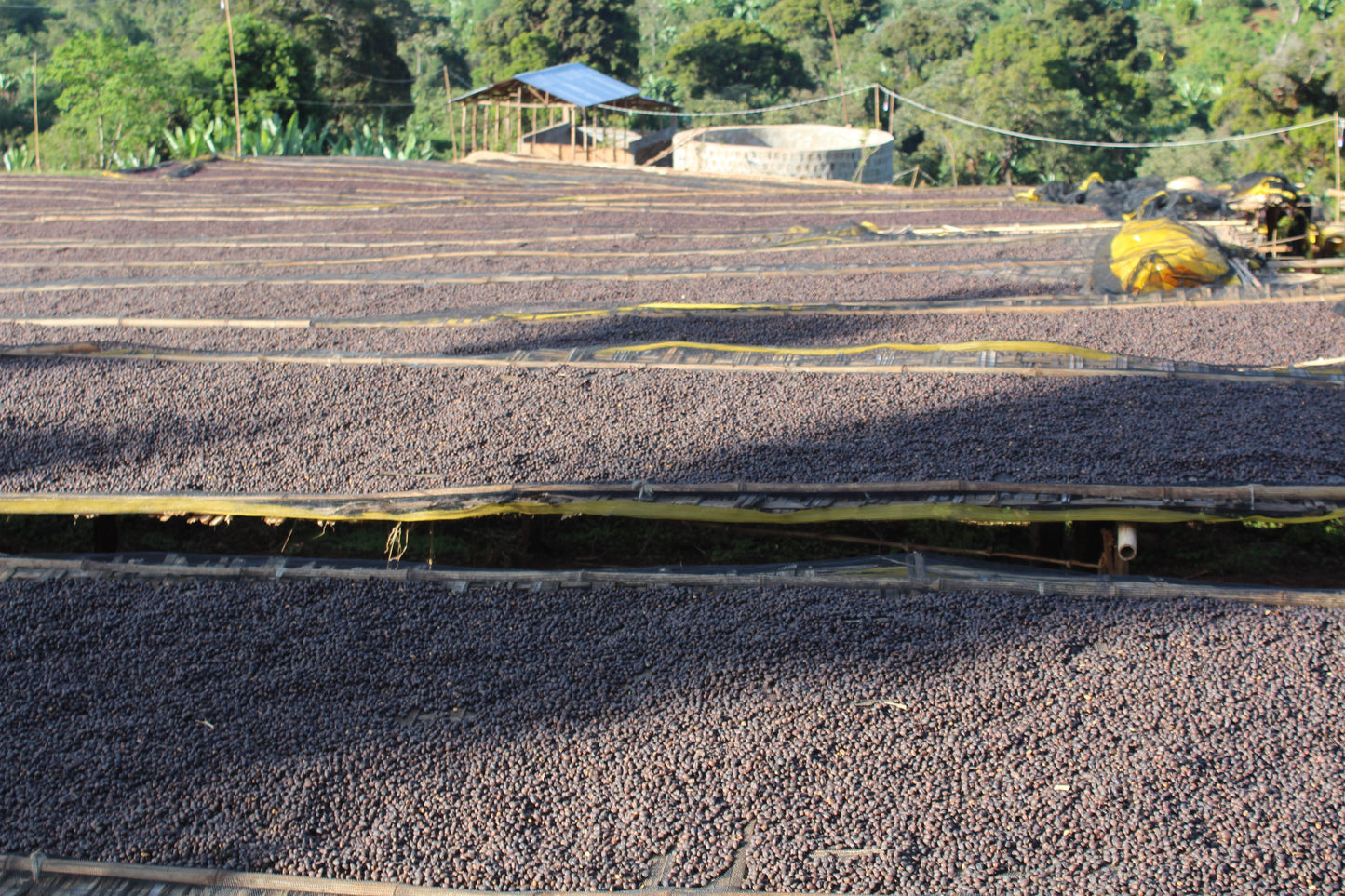
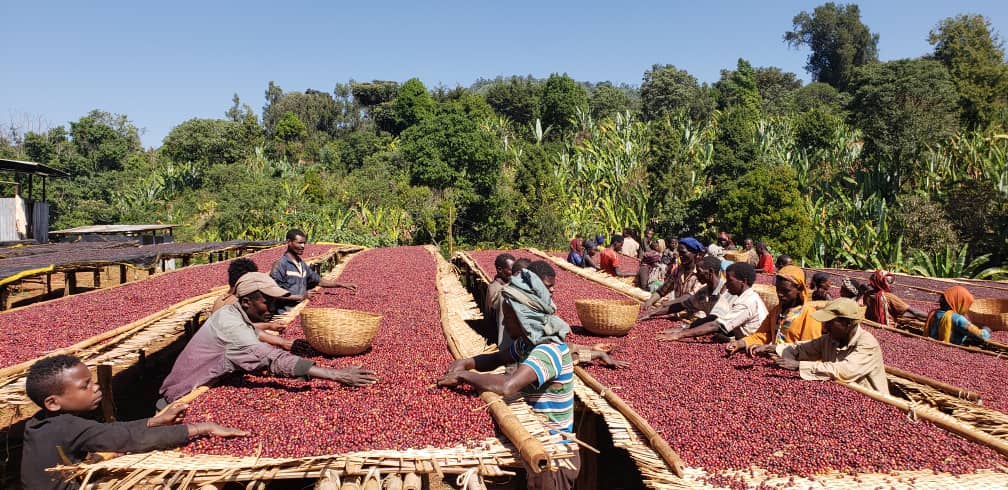
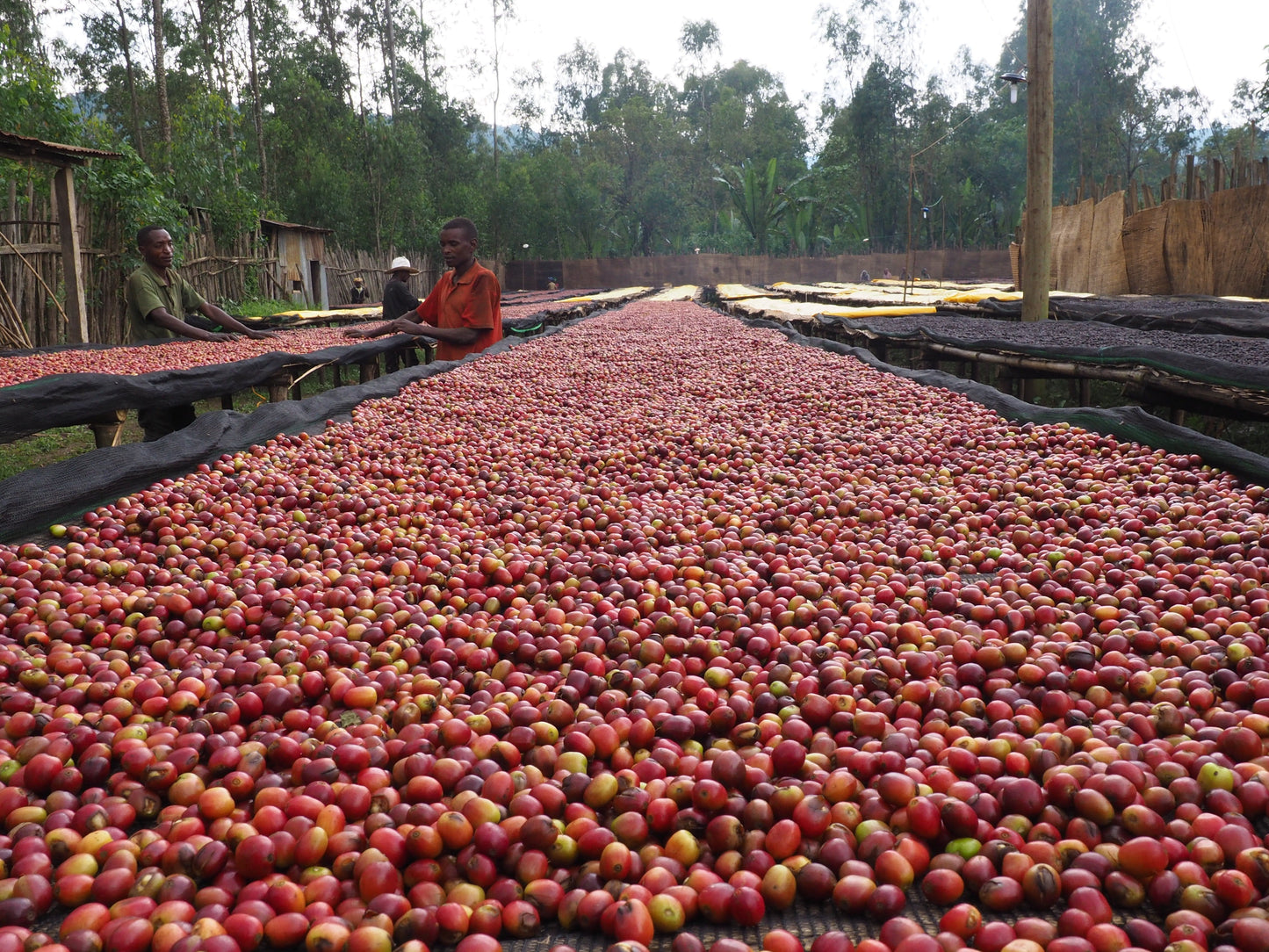
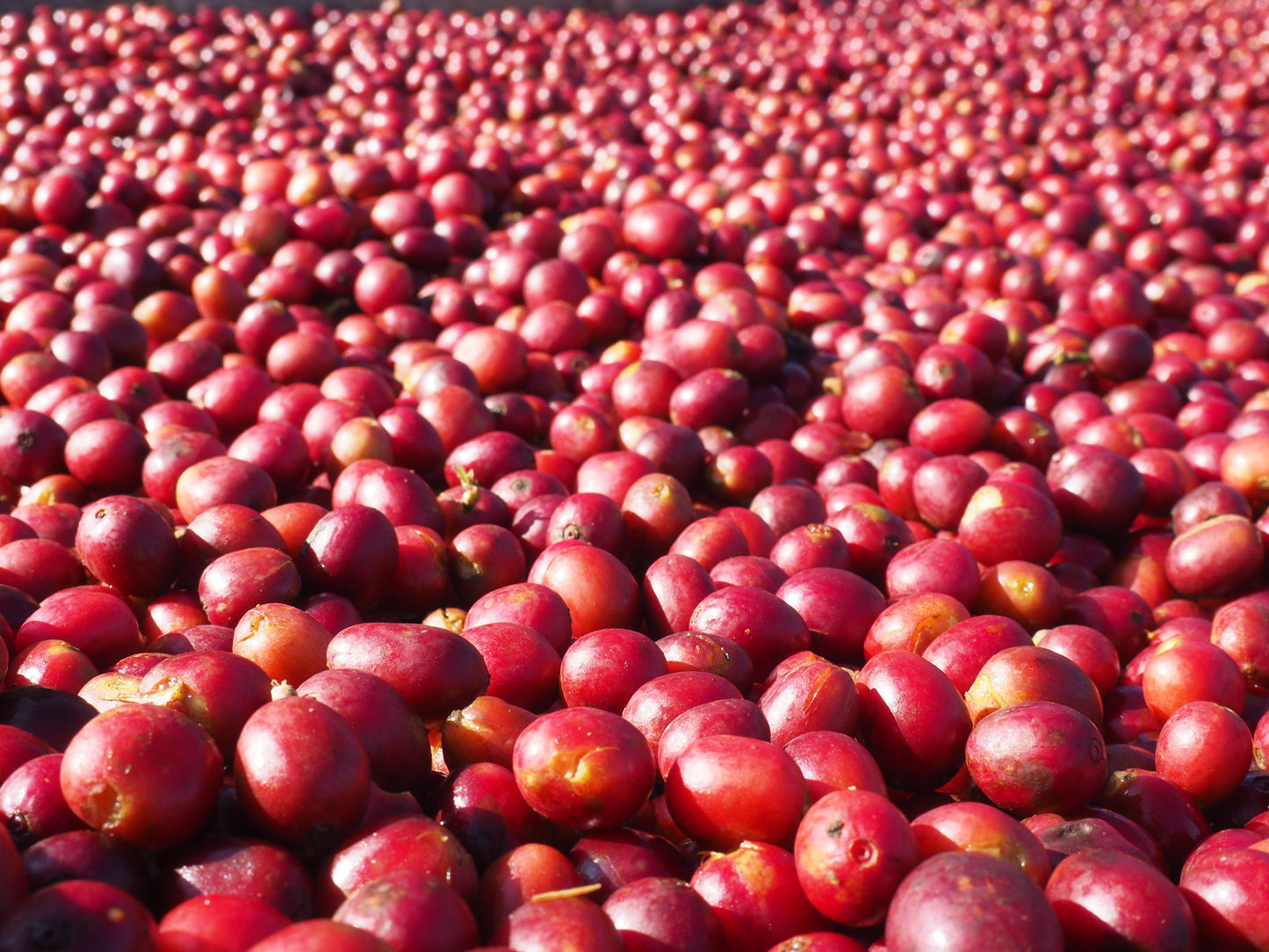
Are you looking to buy Ethiopia | Kochere Boji | G1 Natural #7683 in Australia?
Tasting Notes/Sensory: Tropical Fruit, Grape, Raspberry, Blueberry, Chocolate
SCA CUPPING SCORE: 85
Suitable with Milk? YES
Roast Level: Medium
AGTRON: 62
Roasted Level Suits: Espresso
PROCESSING: Natural
Grade: Grade 1
FARM/COOP/STATION: Boji Washing Station
VARIETAL: JARC varieties , Local Landraces
ALTITUDE: 2,100 to 2,300 meters above sea level
OWNER: 500 producers delivering to Boji washing station
SUBREGION/TOWN: Kochere
REGION: Yirgacheffe
FARM SIZE: <1 hectare on average
HARVEST MONTHS: Low elevations: October - December | High Elevations: November - January
This Natural washed coffee from Boji washing station in Kochere, Yirgacheffe is rich and fruity with winey berries and dark chocolate.
Harvest & Post-Harvest
Natural processing at the station follows the traditional Ethiopian methods. First, cherry is floated and visually checked for underripes, overripes and damaged cherry. After washing cherry in clean water, workers transfer cherry straight to the drying field.
They spread the cherries in a single layer. During the first few days, cherry is carefully turned every 30 minutes to ensure evening drying. This is also when workers remove any damaged cherry. After a few days, cherry is adjusted so that it sits in a slightly thicker layer, which helps slow the drying process. Drying typically takes between 2 and 3 weeks.
What is Grade 1?
Grades in Ethiopia depend on visual inspection for defects and on cup quality. Grade 1 is considered the highest quality coffee. Grade 1 and 2 are considered specialty coffee, grades 3-9 are classified as commercial coffee. Grade 1 is free of cup faults and taints and has zero quakers.
Coffee in Ethiopia
While Ethiopia is famous as coffee’s birthplace, today it remains a specialty coffee industry darling for its incredible variety of flavors. While full traceability has been difficult in recent history, new regulations have made direct purchasing possible. We’re partnering directly with farmers to help them produce top quality specialty lots that are now completely traceable, adding value for farmers and roasters, alike.
The exceptional quality of Ethiopian coffee is due to a combination of factors. The genetic diversity of coffee varieties means that we find a diversity of flavor, even between (or within) farms with similar growing conditions and processing. In addition to varieties, processing methods also contribute to end quality. The final key ingredients for excellent coffee in Ethiopia are the producing traditions that have created the genetic diversity, processing infrastructure and great coffee we enjoy today.
Most producers in Ethiopia are smallholders, and the majority continue to cultivate coffee using traditional methods. As a result, most coffee is grown with no chemical fertilizer or pesticide use. Coffee is almost entirely cultivated, harvested and dried using manual systems.
SKU: ethiopia_boji_g1_natural_60g
Package Weight: 100g








